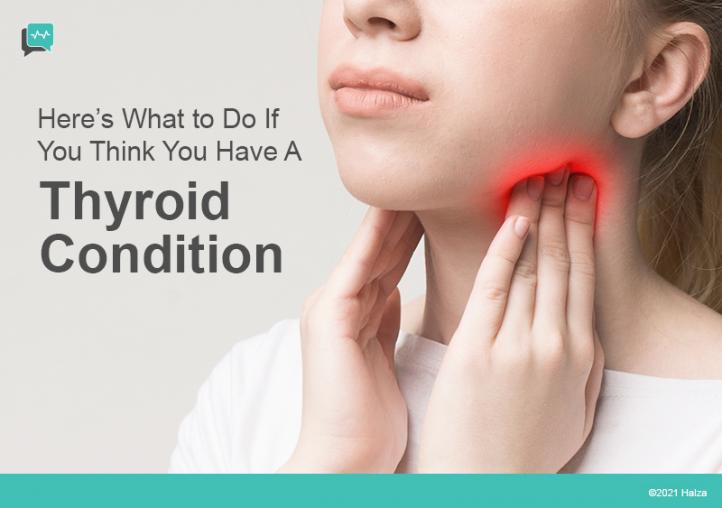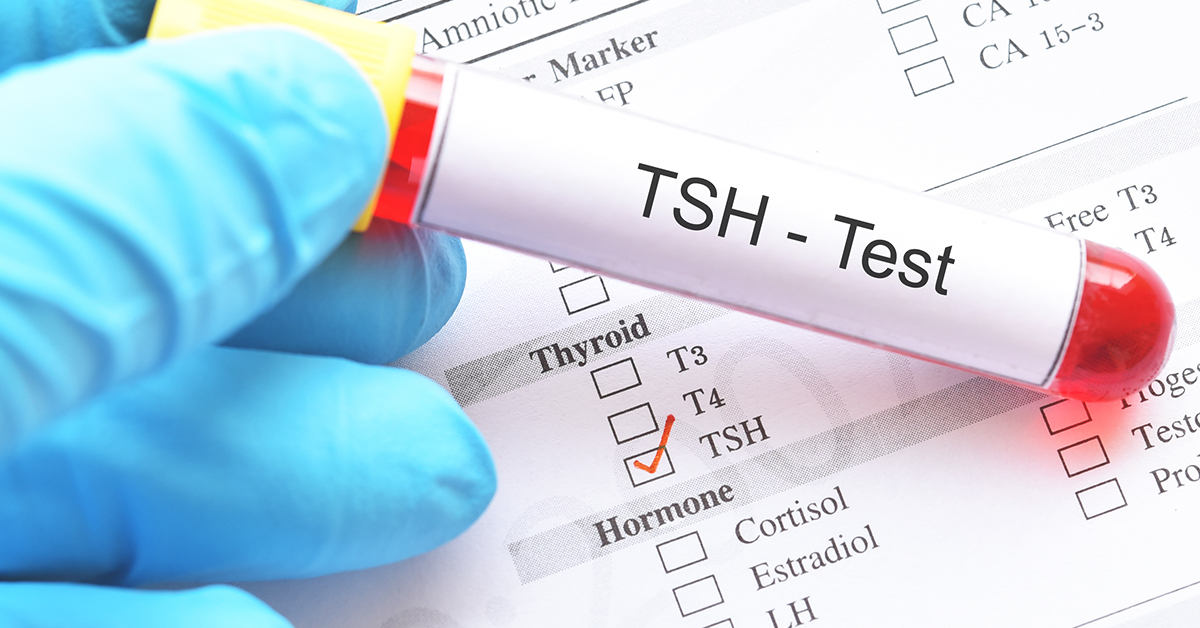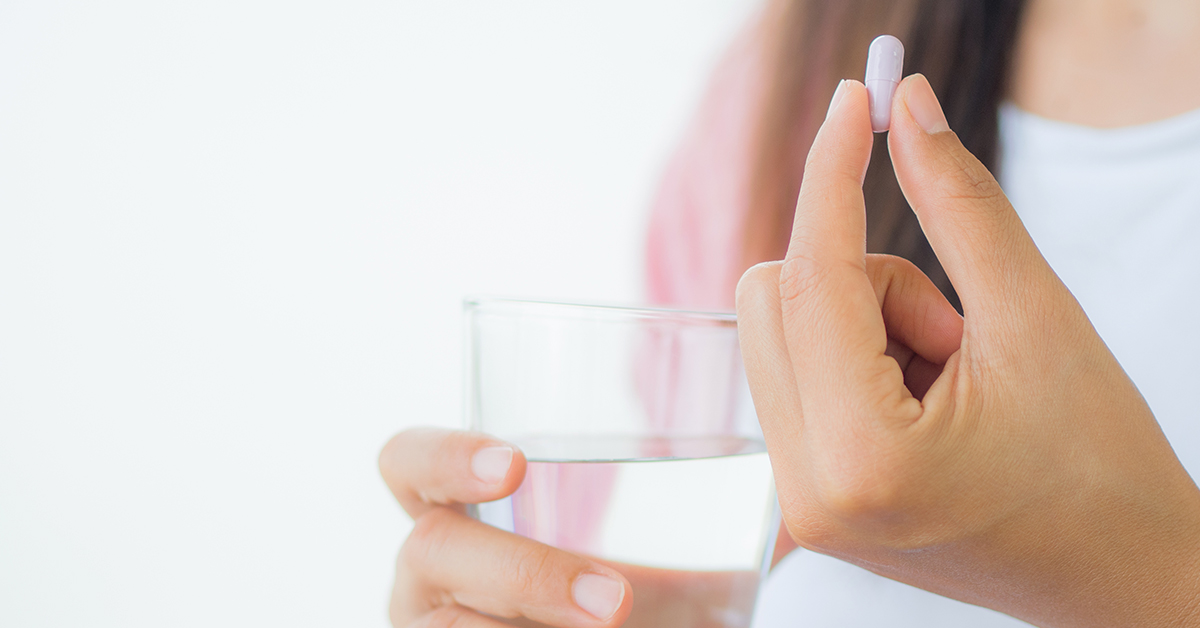Think You Have A Thyroid Condition?

First, make an appointment to see your doctor. Explain your symptoms and concerns to your doctor, no matter how unimportant they may seem to you, as this is the first step to treating your condition with medication and reducing the effect of your symptoms.
As thyroid disorders tend to cause non-specific symptoms, it is likely that you may have some tests done to diagnose thyroid disease and look for other conditions that may be the cause for your symptoms.

Thyroid disorders are mainly diagnosed through a blood test called a Thyroid Function Test, which looks at the two hormones T4 (the main hormone) and T3, as well as TSH.
Sometimes, thyroid antibodies are requested if there is a suspicion of auto-immune thyroid diseases, such as Hashimoto’s and Graves’ disease.
Other tests that may be carried out include imaging, a thyroid scan and uptake test. Imaging usually involves doing an ultrasound scan, which can give information about the overall size and shape of the thyroid gland, including the presence of any nodules.
Thyroid scans and uptake tests use small doses of radioactive iodine to create special pictures of the thyroid gland. These pictures can help doctors assess the structure of the gland, as well as how well it is working.
The test(s) you will most likely undergo will depend on your clinical background and examination.
Your doctor will discuss how to move forward, as well as give you information about all the necessary tests you will be offered. You can also ask your doctor when to expect the results and arrange a follow-up if you haven’t heard anything.
To avoid losing important test results and other scans and records, be sure to store them someplace safe, like the Halza app. Always have your important medical records with you, especially during consultations and check-ups. And never miss an appointment when you set a health reminder on Halza for upcoming doctor’s visits. Learn more about Halza here.
What Happens If I Get A Diagnosis of Hypo or Hyperthyroidism?
Both hypo and hyperthyroidism are treatable conditions. With appropriate management, you can look forward to a better quality of life with fewer symptoms.
You would also be reducing your risk of getting complications that can occur as a consequence of untreated thyroid disease.
Generally, the treatment for hypothyroidism consists of taking an oral medicine generically known as ‘Levothyroxine Sodium’, which also comes in various brand names. Levothyroxine is a synthetic form of the thyroxine hormone that is produced in the body. In most cases, your body is unable to produce sufficient hormone therefore you will need to take the medication lifelong.
 How Do I Take Levothyroxine? Is There Anything I Need to Be Aware of Before Taking It?
How Do I Take Levothyroxine? Is There Anything I Need to Be Aware of Before Taking It?
You will most likely take one or more tablets of the medication at a given dose every day.
The trick to taking Levothyroxine, as with most other medications, is to take it exactly as your doctor recommends and to try and be consistent with its timing.
Levothyroxine must be taken with a glass of water on a completely empty stomach, at least 30 minutes prior to eating, and must only be taken with water. This is to aid its absorption in the gut, thereby its effectiveness. Most people find that it is most convenient to take it first thing in the morning, before breakfast.
It is also important to keep a four-hour time gap with other medications and supplements that you may be taking regularly. This is because as is the case with taking it on an empty stomach, certain medications or supplements if taken together with levothyroxine may affect its absorption.
Your doctor can give you further advice as to which medications, supplements, or foods to be aware that can interact with levothyroxine.
It is important to let your doctor know about your medical history including any medications that you are currently taking, as it will help them come up with a treatment regime that is best suited for you.
The starting dose of levothyroxine is usually the same in most individuals. However, the dose tends to be increased slowly until you reach one that you can continue taking long term.
To do that, you will be requiring regular checks of your symptoms and hormone levels. The eventual dose you will be on and how quickly it can be increased will also depend on your age, and whether you have any other health problems. Having an overview of your medical history helps your doctor make a more accurate decision. Apps like Halza let you have a complete overview of your medical history for situations like these. Find out more here.
Levothyroxine starts to work straight away but it may take several weeks before you notice an improvement in your symptoms, therefore it is important to be compliant with your medication and try not to miss any doses. Setting medication reminders on apps like Halza keeps you from forgetting and helps you stay on your path to recovery. Learn more here.
Do read the information provided with your medication or check on Drugs.com which is a trusted source for medication-related information.
Is the Medication Safe to Take If I’m Pregnant or Planning on Getting Pregnant?
Levothyroxine is usually safe to take in pregnancy and breastfeeding.
In fact, it is important that you continue taking your medication during pregnancy, as untreated disease can lead to complications for you and your baby. Your dose might be adjusted to meet your body’s needs during both pregnancy and if you are breastfeeding.
If you have existing hypothyroidism and you plan on getting pregnant, you should aim to optimize your management beforehand, so you can begin your pregnancy journey with a healthy body and mind.
Related reading:
- Planning on getting pregnant? Here’s everything you need to know.
- Make sure you keep taking the medication you need, even on holiday. Read more here.
What If It Turns Out That I Have Hyperthyroidism?
Hyperthyroidism is treated differently from hypothyroidism.
There are various methods of treatment, including taking anti-thyroid medications, beta-blockers (another form of medication given to control some of the symptoms of hyperthyroidism), being given radioactive iodine, or having surgery.
The goal of treatment is to control the over-production of thyroid hormones. Your doctor will discuss options for treatment with you and that will depend on your clinical symptoms and circumstances. For example, radio-iodine treatment is contraindicated in pregnancy, breastfeeding, and if there are co-existing eye problems.
Are There Any Serious Symptoms or Complications That I Need to Be Aware of With Thyroid Disorders?
If left untreated or if inadequately treated, hypothyroidism causes previously discussed symptoms, as well as might lead to some complications, such as heart disease, mental health issues, infertility, and birth defects in new-borns.
There is a rare but severe complication called myxoedema coma which occurs in severe hypothyroidism and requires urgent medical treatment.
Hyperthyroidism can also lead to quite serious complications, particularly for the heart. As you can imagine, if your body is constantly running on over-drive (as is the case here), your heart would be affected. Complications include arrhythmias (abnormal heart rate and rhythm).
Graves’ disease has a known complication called Graves’ ophthalmopathy. It is a group of problems related to the eyes and the symptoms include discomfort, visual disturbance, and bulging of the eyes.

You also run the risk of developing a condition called osteoporosis (thinning of your bones) with under-treated hyperthyroidism.
There is a rare and potentially life-threatening complication of hyperthyroidism called ‘thyroid storm’, which tends to be triggered by certain precipitants such as trauma, heart attack, or surgery and requires immediate medical treatment.
It’s important that you have a list of pre-existing health conditions that you can provide attending doctors with so they can better understand your situation. Medical apps like Halza let you take your complete health history with you, wherever you go. Simply upload your information securely and you’re all set for your consultations and appointments. Learn more here.
There is still a lot to know and learn about so be sure to do your own research and consult a doctor before making any decisions on how to proceed with managing your thyroid condition.
Sources:
All Thyroid Diseases (endocrineweb.com)
Thyroid Tests | NIDDK (nih.gov)
